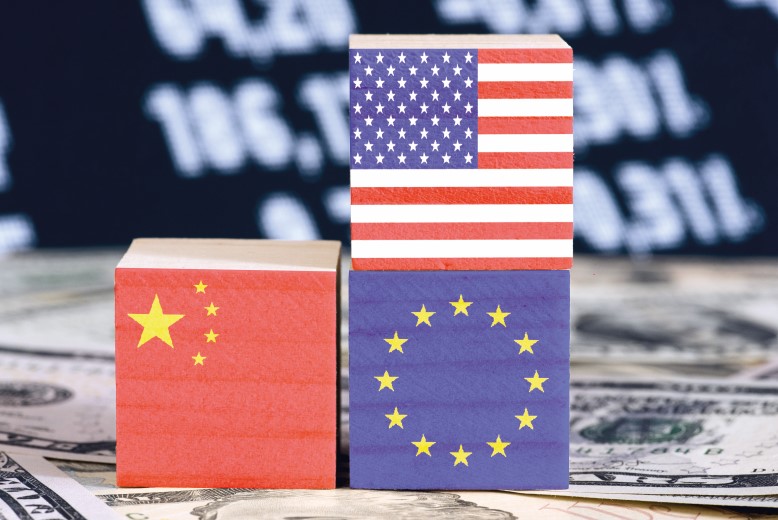
Geoeconomics
Geoeconomics represents the convergence of economics and geopolitics, a realm where economic power is wielded to achieve strategic objectives on the global stage. It recognizes that in today's interconnected world, economic forces play a crucial role in shaping the political and security landscapes among nations.
Within the overarching research theme of Geoeconomics, The Swedish Institute of International Affairs (UI) will analyse the dynamics of geoeconomics, exploring how countries leverage economic tools, navigate trade relationships, and harness the power of economic interdependencies to advance their national interests. We will examine the geopolitical rivalries, the balance between cooperation and competition, and the impact of critical and emerging technologies on the geoeconomic landscape. Whether you are a student, researcher, policymaker, or simply curious about the intersection of economics and geopolitics, this platform offers valuable insights and analysis into the evolving world of geoeconomics.
Geoeconomics emphasizes the significance of controlling and leveraging economic flows to enhance national security, promote economic competitiveness, and safeguard vital industries. At the same time, it acknowledges the vulnerabilities and risks that arise from imbalanced dependencies and the potential for economic coercion. As for example the United States and China engage in a geopolitical rivalry, geoeconomics takes centre stage as they compete for influence, control over critical technologies, and dominance in global supply chains. Within Europe, countries like Sweden face the complex challenge of adapting to this shifting landscape, aiming to protect their interests while navigating the intricate web of dependencies and finding the right balance between economic cooperation and security considerations.
Critical technologies play a central role in this context. They encompass a wide range of sectors, including artificial intelligence, quantum computing, biotechnology, and advanced manufacturing, which hold strategic importance due to their potential to revolutionize industries, enhance military capabilities, and reshape geopolitical power. Understanding how different actors employ geoeconomic tools to protect their critical technologies, and the driving forces behind it, is crucial for comprehending the motivations and strategies of different actors. By exploring these questions, we can gain valuable insights into the future scenarios, implications, and challenges posed by the geoeconomic competition over critical technologies.
In Europe, countries like Sweden face the complex task of navigating economic interdependencies, national security concerns, and the pursuit of economic competitiveness in the geoeconomic arena. Coordination in the EU as well as international cooperation and multilateral frameworks, such as the EU-US Trade and Technology Council (TTC), play a vital role in managing geoeconomic rivalries and promoting stability in the global economy.
This project is carried out by Björn Fägersten, senior researcher (UI) and Ulla Lovcalic, analyst (UI).

